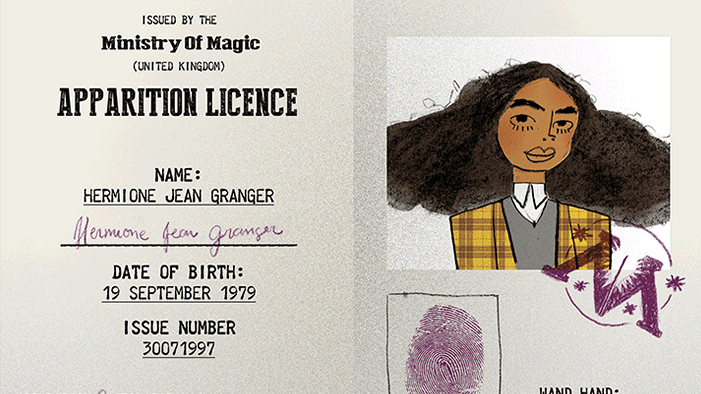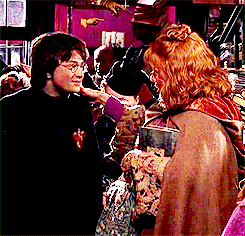The Working Women of “Harry Potter”
Happy International Women’s Day! It’s rare that a book series offers readers a chance to experience female characters in the working world. If the female characters do have a job to do, it’s usually to aid and assist their male friends. What sets the Harry Potter series apart is that the women characters have all kinds of jobs – Ministry officials, mothers, housewives, rebel leaders, small business owners, professors, and writers. These are just a few of the many amazing jobs these characters can have.
When it comes to political jobs, the women in the Harry Potter series have it covered. Several prominent and minor female characters in the books work at the Ministry of Magic. Amelia Bones, Dolores Umbridge, Nymphadora Tonks, Tina Goldstein, Queenie Goldstein, and eventually, Hermione Granger are a few of these women. Throughout wizarding history, there have even been multiple female Ministers of Magic. Some notable ones include Artemisia Lufkin, the first female Minister of Magic; Ottaline Gambol, who put in place the Hogwarts Express; and Evangeline Orpington, who came up with the magical King’s Cross platform. These are just a few women in the British Ministry that we as readers know about.
Working women in the Harry Potter books aren’t just involved in politics. They are teachers and mentors as well. A few of my favorite female professors at Hogwarts are Minerva McGonagall, Pomona Sprout, and Sybill Trelawney. These women are loud and proud. They are constantly astounding their students with advanced spellwork and their knowledge of magic. For example, few wizards could fearlessly snatch up a Mandrake like Professor Sprout. Another aspect I love about these female professors is their mentorship. It’s really underrated how Professor McGonagall takes Hermione under her wing and really looks out for her. She approves Hermione’s use of the Time-Turner, knowing that Hermione was mature enough to handle it. McGonagall is a fierce female, especially at the moment when she stepped in front of Harry to protect him during the Battle of Hogwarts.
There are some women in the wizarding world who aren’t paid for the many jobs they do. There are mothers and housewives who don’t work for money but instead give their hearts to their children and families. Two great examples of such women are Molly Weasley and Fleur Delacour. Molly Weasley is a lioness bent on protecting her cubs. She basically adopts Harry as a son without him even asking. She works hard to provide delicious meals to her family and still has time to maintain a loving relationship with Arthur. This woman has energy and love to spare.
Then, there’s Fleur. Even before she married Bill Weasley, she proved herself to be a loving and caring individual. She would do anything to protect her younger sister, and readers understand that once Gabrielle is revealed to be the person Fleur cares about the most in Harry Potter and the Goblet of Fire. If Fleur is this protective and loving towards her sister, we can only imagine what a wonderful mother she ends up being. Plus, it’s difficult to forget how tirelessly Fleur worked to keep Shell Cottage neat and orderly when it was full to bursting with guests.
Last but not least are a few minor female characters that don’t play a huge role in the books but do contribute to the readers’ appreciation of female representation in the series. These are the characters that are only just mentioned or briefly talked about. There’s Madam Malkin, who owns her own robe shop in Diagon Alley. At first glance, she’s not an important character to the plot, but she is important overall. She’s not just a working woman – she’s a small business owner. She runs her own store, and that’s pretty impressive. Also, there’s Poppy Pomfrey, who runs the entire hospital wing at Hogwarts with her vast medical knowledge. Talk about a talented Healer. Rolanda Hooch is another impressive character. She’s so much more than a flying instructor; she referees the Quidditch games at Hogwarts too. She’s an excellent example of women getting involved in the sports world.
Have we left anyone out? Or better yet, is Rita Skeeter considered a pioneer female journalist even though she insults everyone in her writing? Feel free to comment with your ideas.







